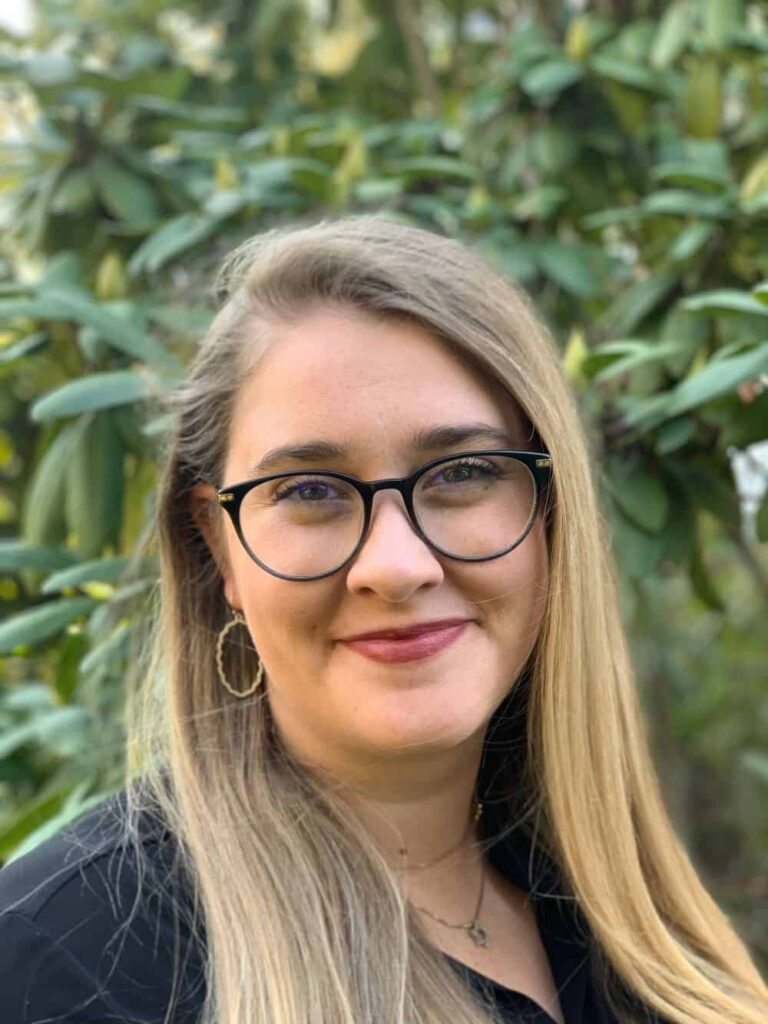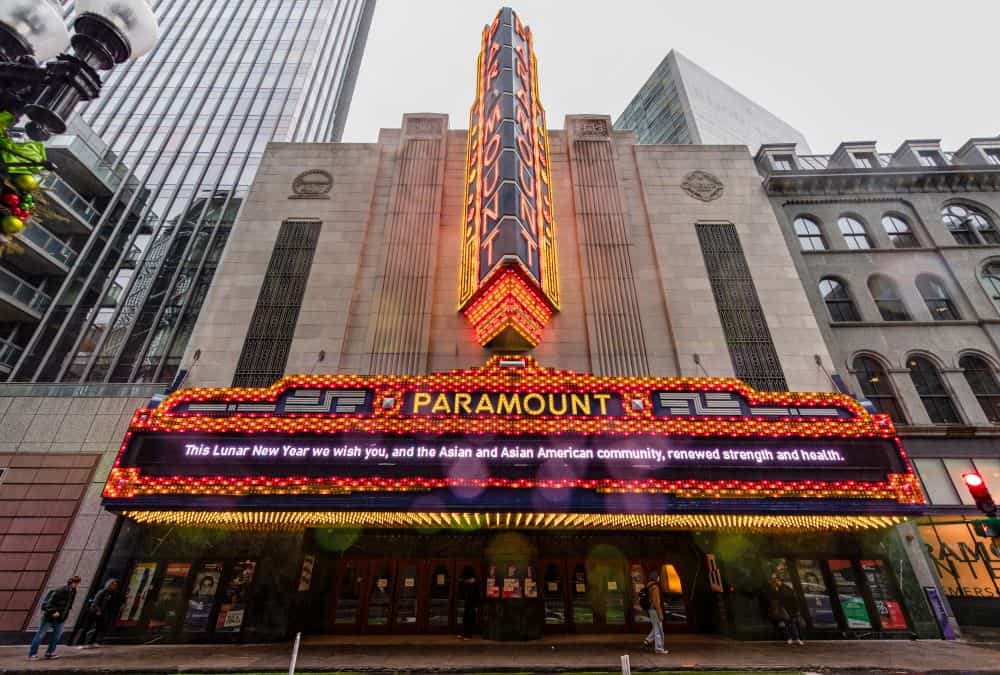
Located in the heart of Boston’s theatre district, Emerson College is a special place to study theatre education. If you’re interested in applying to one of Emerson’s Theatre Education & Applied Theatre programs but want more information, this blog is for you. Today we’re interviewing Julie Scheinthal, the graduate admissions counselor for our Theatre Education & Applied Theatre MA and MFA programs. You’ll get answers to our commonly asked questions about these programs and learn what makes Emerson’s theatre programs unique.
Q: Why should students choose Emerson for graduate school?
A: Our programs are very tightly-knit. Students would have to work to fall through the cracks here because our class sizes are small and our faculty know students by name. Additionally, every student in the Theatre Education & Applied Theatre programs is paired with a faculty member as their one-on-one mentor.
Because our class sizes are small, students get to know everyone in their cohort. After graduation, the people in your cohort will be your professional peers for the rest of your career. It’s great to have these close connections early on.
Q: What makes the Theatre Education & Applied Theatre programs unique?
A: Emerson is unique in that we offer both an MA and MFA degree. Both degrees allow students to choose a Theatre Education track or an Applied Theatre track. These options make our theatre programs dynamic and flexible. With this flexibility, students can tailor their educational experience to their own needs and goals.
While customizable to individual students’ goals, our programs also ensure collaboration and community between students. Students in the MA and MFA programs take courses with one another, and all students get some training in both theatre education and applied theatre.
Our theatre programs are also unique because they are extremely hands-on and community-oriented. Three core faculty members lead the Theatre Education & Applied Theatre department, and all of these faculty teach classes and know students at a one-on-one level. Additionally, students in both the MA and MFA programs experience being observed and receiving feedback from professors and supervisors. We also have community partners involved in some electives, which is a great experience for our students to meet professionals in Boston’s theatre community.
Lastly, all students in our theatre programs have the option to pursue Massachusetts teaching certification. MA and MFA students have the option to gain student teaching experience during their program so that they are eligible to pursue their teaching license after graduation.
Q: How big are the cohort sizes for these programs?
A: For the MA and MFA programs combined, we typically accept 25-35 students each year. This small cohort size helps create a tightly-knit community, but we always recruit as many students as possible, so students shouldn’t be afraid to apply.

Q: Who should apply for Emerson’s Theatre Education & Applied Theatre programs?
A: Our MA program is for individuals with some experience in theatre who still want to learn the core theories of the field and build up their practice. Many of our students in the MA program are newly graduated from college and are looking to establish themselves as a teacher, artist, and leader of community development. If you’re looking to launch a career as a theatre teacher, the MA program can prepare you for Massachusetts teaching requirements. The MA program consists of 9 courses and does not require students to complete a thesis.
The MFA program, on the other hand, is geared toward individuals with a more established practice in theatre. There are no formal work requirements, but most MFA students are at least 2 years post-grad and have existing skills as a theatre maker or community developer. MFA students have an interest in research and know their own teaching style, social justice goals, and vision for their artistry. Generally, our MFA students want to gain leadership positions with this terminal degree, and most do not enter teaching roles directly after the program. This program consists of 12 courses, and all MFA students complete a thesis over two semesters.

Q: How can prospective students make their applications more competitive?
A: Pay attention to the details. We take a holistic approach to admissions, so make sure you take the time to update your resume to include relevant experiences and try to show some personality through the design of your resume.
Also, take the time to sit with the application essay questions and be sure you answer the questions completely. We are looking for applicants who have the skills needed to thrive at the graduate level where writing is a core requirement, so take the time to carefully write your application essay.
In terms of references, I tell prospective students to get letters of recommendation from people who know them well. Don’t choose a generic professor who only knows your name and grade in a class. If you have been out of college for a while, you can always ask supervisors for letters of recommendation. Whoever you get to write your letters of recommendation, send them the link to the graduate program you’re applying to. This will allow your recommenders to know what Emerson is looking for in applicants, which helps them write a more focused, compelling letter.
Q: How does financial aid work?
A: When students apply for any graduate program, they automatically get considered for financial aid; they don’t need to submit a separate application. The one exception is the Transformational Leaders Graduate Fellowship, which students must apply to receive. I also always tell students that, if they feel like they need more financial assistance than they were offered, they can always use the scholarship appeal button to request more funding.
Q: What kinds of careers do the Theatre Education & Applied Theatre programs prepare students for?
A: Graduates of the MA and MFA programs can go on to teach in preK-12 schools and regional theatres. MFA graduates often pursue leadership roles, such as artistic director or managing director. Alumni from our programs have worked for organizations such as the Huntington Theatre Company, Central Michigan University, Cambridge Public Schools, and the Wang Theatre.
To help students begin building their careers while in school, Emerson has a number of excellent resources. I always point students to our amazing Career Development Center. Here they can find career counseling, professional development guides, and more. Outside of the Career Development Center, faculty members are a great resource. By getting to know faculty members, students automatically build their professional network at Emerson. Of course, there’s also the broader Emerson alumni network, which students can always tap into for connections and advice.
Hopefully, today’s blog has given you a better understanding of Emerson’s Theatre Education & Applied Theatre programs. For more information about these programs, schedule a call with an admissions counselor. To learn about how Emerson’s graduate programs prepare students for professional success, check out our alumni blog page.


Jeffrey L. Stewart
We have a Paramount that was once a movie theater and has now has been, for decades, an arts, concerts, plays, etc. center and it looks almost exactly like your Paramount. It is located in Ashland, Ky.